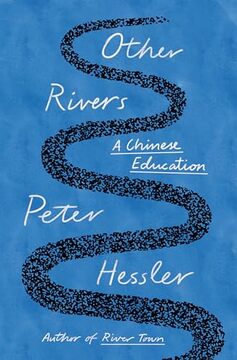This book is a little bit different to me compared to other books of Peter Hessler: for the other books, they talk about eras when I was too young to be familiar with. So there is a feeling of distance and more like things in the history. But I witnessed, or even was part of the era that is covered in this book: from Peter Hessler went back to China again, to the drama on the social media about a review he gave to a student, to the articles he wrote for New Yorkers during the Covid, to he left China again. There is a special feeling when read this book and look back the things happened during the past years.
Unlucky for a normal person, but lucky for a writter, Peter Hessler seems to be able to catch big events: when he first came to China as a reporter (after teaching in China for 2 years), he caught the US bombing of the Chinese embassy; When he moved the Egypt, he caught Arab Spring; When he moved back to China again, he caught the break of Covid. As the few foreign reporters that were still able to stay in China (because on paper, he worked in China as a teacher instead of a reporter), he provides a valuable perspective of the Covid in China. During his time in China, the Covid measurement was effective after the first period of mess, and most of the things talked in the book kept on a positive note.
However, this era is different than the eras in his previous books: the magic like economic development speed has come to an end. The government broke the power transfer convention and became more autocratic. Not only in China, with the election of Trump, the globalization seems to come to an end. With the close of the US embassy in Chengdu where Peter Hessler teaches, and with his visa expired, he decided to leave China. Lucky for a normal person, but unlucky for a writer, he didn’t witness the widely protest of Covid measurement a few months later, which is a rare scene in recent Chinese history. And unlucky for a Chinese, we lost a unique perspective to observe Chinese sociality. I’m really sad about that.
